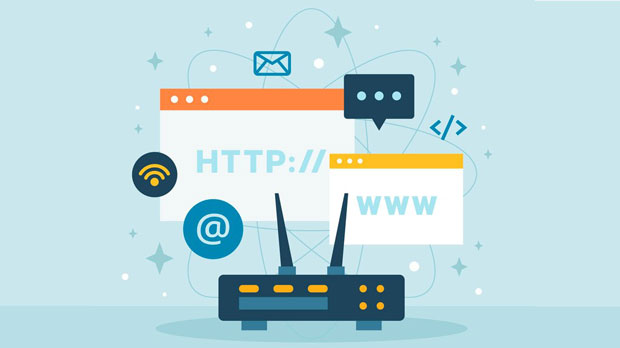In recent years, the use of proxy servers has become a widely accepted practice for accessing torrent websites, especially when they are blocked or restricted by local governments or internet service providers. Extra Torrents Proxy HTTPS has emerged as a popular solution for users seeking a safe and secure way to access content during peak internet traffic hours. However, the stability of such proxies under high-demand conditions remains a crucial point of evaluation. This article aims to provide a detailed analysis of the performance and reliability of Extra Torrents Proxy HTTPS during peak periods. By examining factors such as speed, security, and connection consistency, we will give users valuable insights into its effectiveness for uninterrupted access to desired content. Introduction: The Need for Proxy ServersProxy servers serve as intermediaries between users and the websites they wish to access. They provide a range of benefits, including enhanced security, privacy protection, and the ability to bypass geographical restrictions. In the case of torrent websites, proxy servers are especially useful as they allow users to access torrent files without revealing their real IP addresses. The use of HTTPS (Hypertext Transfer Protocol Secure) ensures that the connection between the user and the proxy server is encrypted, providing an added layer of security. However, despite these advantages, the effectiveness of proxy servers like Extra Torrents Proxy HTTPS during high traffic periods, or peak hours, is a critical factor that can impact user experience.Factors Affecting Stability During Peak HoursDuring peak hours, when the number of users accessing a server increases significantly, several factors can affect the stability of proxy servers. These factors include server load, bandwidth availability, network congestion, and the efficiency of the server’s infrastructure.1. Server Load and BandwidthThe server’s capacity to handle a large number of users is one of the most critical aspects of its performance during peak hours. When too many users attempt to access the proxy server simultaneously, the server’s resources can become overwhelmed, leading to slower speeds or even disconnections. Bandwidth, which refers to the amount of data that can be transferred over the network at a given time, plays a significant role in maintaining smooth performance. Servers with insufficient bandwidth may experience slow download speeds, buffering, and interruptions, all of which diminish the user experience.2. Network CongestionNetwork congestion occurs when the demand for internet bandwidth exceeds the available supply, causing delays in data transmission. During peak hours, internet traffic surges as more people go online for work, entertainment, and other activities. This increased demand can lead to congestion, affecting the stability of proxy servers. For users accessing Extra Torrents Proxy HTTPS, network congestion can result in slower load times, timeouts, or difficulty in establishing a stable connection to the server.3. Server Infrastructure EfficiencyThe quality of the proxy server’s infrastructure plays a crucial role in determining how well it performs during high-demand periods. A server with robust hardware, including powerful processors, ample memory, and fast storage, is better equipped to handle large volumes of data without significant performance degradation. Additionally, the software and configuration of the proxy server must be optimized to handle peak loads effectively. Servers that are not properly optimized may experience latency, downtime, or unreliable connections during peak hours.Performance Metrics for Stability EvaluationTo assess the stability of Extra Torrents Proxy HTTPS during peak hours, several key performance metrics should be considered:1. Speed and LatencySpeed and latency are two of the most important metrics when evaluating the performance of a proxy server. Speed refers to how quickly data is transferred between the user and the server, while latency measures the time delay between sending a request and receiving a response. During peak hours, an increase in latency can significantly affect the user experience, leading to slow loading times and lag. A proxy server that maintains low latency and high speed during peak periods is considered to be more stable and reliable.2. Connection Stability and UptimeAnother critical metric is the connection stability, which refers to how consistently the proxy server maintains an active connection. Frequent disconnections or timeouts can make it difficult for users to complete downloads or stream content. Uptime, which refers to the amount of time the server remains operational without downtime, is equally important. A proxy server that has high uptime during peak hours ensures a continuous and reliable user experience.3. Error RatesThe frequency of errors, such as connection timeouts, DNS resolution failures, or HTTP errors, is an important indicator of stability. Proxy servers that encounter a high number of errors during peak hours are less reliable and may frustrate users. Evaluating error rates can help identify potential issues with the server’s configuration or network infrastructure.Evaluating Extra Torrents Proxy HTTPS PerformanceBased on the performance metrics outlined above, it is possible to evaluate how Extra Torrents Proxy HTTPS performs during peak hours. While it is difficult to make a blanket statement about the performance of the proxy across all regions and networks, several general observations can be made.1. Speed and Latency During Peak HoursDuring peak hours, users may experience a noticeable decrease in speed and an increase in latency. However, the extent of this decline largely depends on the server’s bandwidth capacity and its ability to handle high traffic volumes. In some cases, users may experience slower download speeds or longer buffering times when accessing content through Extra Torrents Proxy HTTPS. Despite this, the proxy still offers a secure and reliable means of access compared to other alternatives that may not provide HTTPS encryption.2. Connection Stability and UptimeThe connection stability of Extra Torrents Proxy HTTPS during peak hours tends to be fairly consistent, although some users may experience intermittent connectivity issues depending on the server’s load. In general, the server’s uptime remains high, meaning that users can expect to maintain a stable connection for most of their browsing and downloading needs. However, during extreme peak periods, occasional downtime may occur, particularly if the server infrastructure is not adequately scaled to meet the demand.3. Error RatesWhile Extra Torrents Proxy HTTPS generally performs well in terms of error rates, users may occasionally encounter connection timeouts or DNS errors during peak hours. These errors are typically more frequent during periods of extreme network congestion or when the server is overloaded. However, these issues tend to be temporary and resolve themselves once the traffic load subsides.Conclusion: Overall AssessmentIn conclusion, Extra Torrents Proxy HTTPS performs relatively well during peak hours, with some minor issues related to speed, latency, and connection stability. However, the server’s ability to provide a secure and private browsing experience, along with its consistent uptime, makes it a valuable tool for users seeking access to torrent websites. For those who require uninterrupted access during peak hours, it may be worthwhile to consider using premium proxy services with dedicated bandwidth or exploring other proxy options that are optimized for high-traffic periods.
Jul 24, 2025



































































